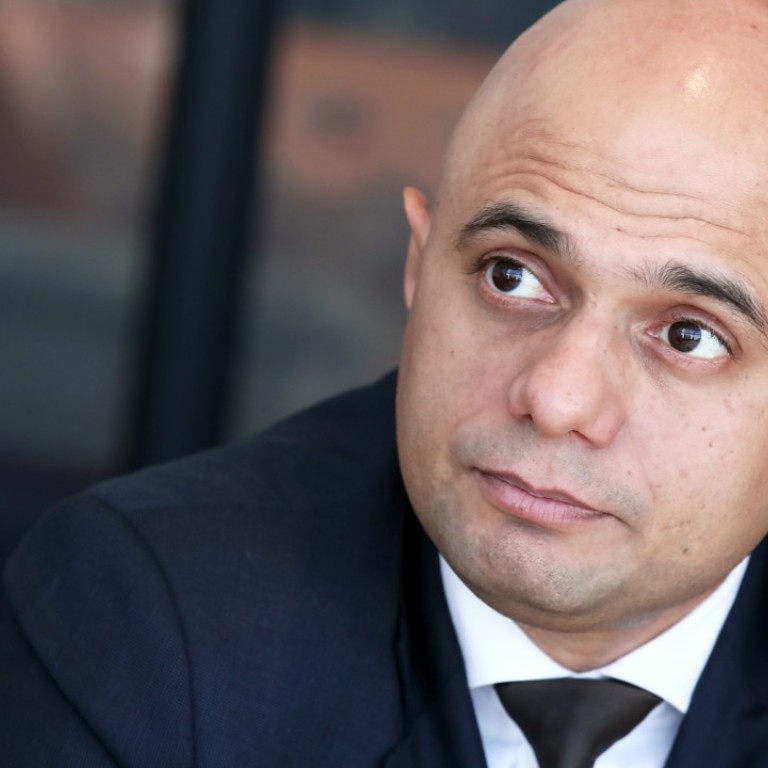
No reply yet from Hong Kong on UK activist barred from city, British official says
When approached by the Post, the office of Hong Kong’s chief executive said it would not comment on individual cases
On October 11, Rogers arrived at Hong Kong International Airport, but was barred from the city and escorted to a plane flying back to London via Thailand.
“The Foreign Office spoke to the Chinese ambassador, and Mark Field has also written to the executive here and asked for explanation. I am not aware of a reply,” British Secretary of State for Communities and Local Government Sajid Javid said in an interview with local media.

“We were concerned about what happened with Benedict Rogers, very concerned about it,” Javid, a cabinet minister, added.
The office of Hong Kong’s chief executive said it would not comment on individual cases when asked if it had received any inquiry from the British government and whether it had replied.
The Foreign Office has not replied to the Post on their official exchanges with Hong Kong and Beijing over Rogers’ case.
“I don’t believe we have received one [reply from Hong Kong] yet, but I have no doubt that it will be forthcoming, and we will see what that it is and what it says,” Javid said.
The case of Rogers sparked an international debate on Hong Kong’s autonomy under the “one country, two systems” principle.
British human rights activist refused entry to Hong Kong
According to the policy and the Basic Law – the city’s mini-constitution – Hong Kong administers its affairs within its autonomy except for defence, foreign affairs and other matters for which the central government is responsible.
Hong Kong’s Immigration Ordinance authorises officers to refuse entry after the examination of any visitor.
After being barred last month, Rogers said he had received indirect warnings from the Chinese embassy in London before his trip. The deputy chairman of the UK Conservative Party Human Rights Commission said there was concern that Rogers intended to visit the jailed student leaders of the 2014 Occupy movement.
On October 11 in London, British Foreign Secretary Boris Johnson vowed to seek “urgent explanation” from authorities in Hong Kong and Beijing on the matter. Johnson said Hong Kong’s high degree of autonomy “should be fully respected”.
On October 12, when asked if Beijing was behind the decision to deny entry to Rogers, Carrie Lam said the central government was responsible for foreign affairs according to the Basic Law.
On the same day, Hua Chunying, spokeswoman for mainland China’s Ministry of Foreign Affairs, said Rogers “arrived in Hong Kong with the intention to interfere in internal affairs and judicial independence” and that “he knows that well enough himself”.
Hua said it fell within China’s sovereignty to decide who was allowed to enter the Chinese territory and China had lodged representations with the UK.


